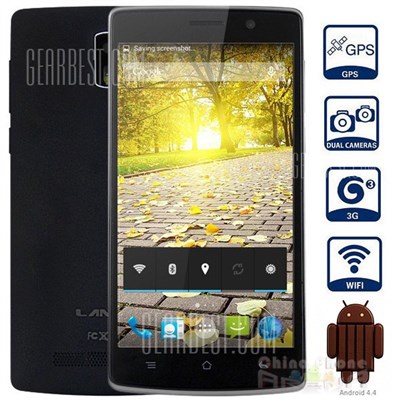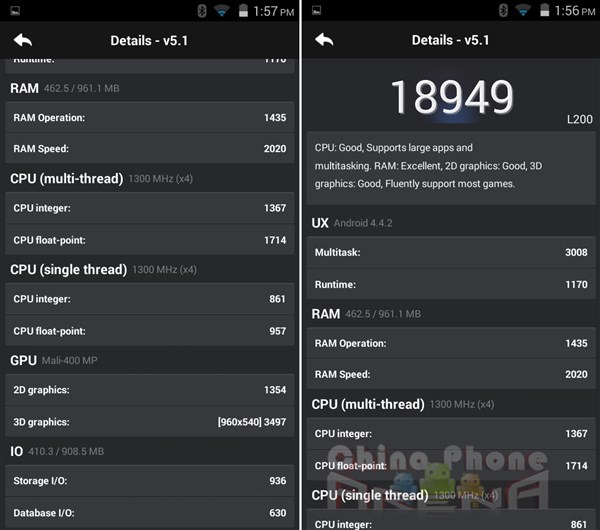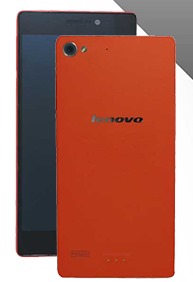A couple of months ago I reviewed the THL 5000 and was left very unimpressed. Among other more minor issues, the screen came set crooked.
THL now has an opportunity to redeem themselves with the THL 4000.

A couple of months ago I reviewed the THL 5000 and was left very unimpressed. Among other more minor issues, the screen came set crooked.
THL now has an opportunity to redeem themselves with the THL 4000.

We have a couple of Elephone reviews to be written. Coming next week will be the Elephone P3000, but first up is the Elephone G6. (more…)

Our last review of a No.1 product, the No.1 S7 did not go so well. We’re giving No.1 another shot to see if they can reach a higher level with the No.1 Mi4. (more…)

Recently I reviewed the interesting but flawed MPIE 909T. In that review I remarked:
“I was impressed with the hardware of the phone. (more…)

The LCD was great looking and the price was excellent for the specs.
Eleven months ago iNew changed the game with their evolutionary release — the iNew V3. The iNew V3, at the time, was one of the slickest looking mobiles on the market, and that included putting it up stylewise against the popular name brands as well. (more…)

NOTE: The Landvo L200 is not the same mobile as the LTE Landvo L200G
The Landvo L200 is a competitive, quad-band 3G, KitKat phone. It offers a straightforward, no-nonsense approach in a practical budget smartphone.
Landvo has jumped into the worldwide ultra low budget 3G smartphone scene, and made quite a noteworthy splash. In the sub $100 price range, the Landvo L200 packs a surprising wallop with a huge focus on practical features and a refreshingly lean approach to technological frills.
First and foremost, a quick discussion on what isn’t there. The Landvo L200 makes no attempts at NFC, OTG or Qi Charging. Similarly, this set parallels features many casual users tend to utilize least on other full-featured smartphones. In short, it seems Landvo was thoughtful in feature trimming to provide the most useful bang-for-the-buck.
Now for the features actually included in the Landvo L200. From the outset, it appears like many others with a generous 5” display, quad-core 1.3GHz Cortex-A7 processor, 1GB of RAM and 8GB of storage. It has a 2MP front camera, and a capable 8MP rear camera with flash.
What truly sets this budget phone apart is its network support. In addition to standard quad-band 2G support, the Landvo L200 offers quad-band 3G as well. The 3G frequencies covered are WCDMA 850/900/1900/2100 MHz. The inclusion of 1900 MHz makes it a noteworthy contender in the United States on both AT&T and T-Mobile, and the inclusion of both 850 MHz and 900 MHz in addition to 2100 MHz make it capable of obtaining 3G coverage in a tremendous majority of the world as well.
The L200 phone construction feels stable and the phone itself is surprisingly light. The plastic rear cover is slightly thicker than most and snaps very securely into place. The front screen is clear and comes equipped with a screen protector. An extra screen protector was included as well.
The phone is also packaged with a snug-fitting TPU case. The matte feel of the rear of the case compliments nicely with the sticky sides to make the phone feel even more secure in hand. The TPU case fits the phone well, and sits flush with the screen in the front. While this does provide a really slick feel and look to the phone, an added 2mm or so of bumper along the front of the phone would have been nice in case of an accidental front fall onto a flat surface.
The Landvo L200 comes equipped with a quad-core processor and 1GB of RAM – plenty of power for most applications and casual use. The 8GB ROM is on the lean side, but the phone’s storage can be expanded with a microSD card for up to an additional 32GB.
Some quad-core MediaTek devices historically exhibited GPS problems. This was not the case with the Landvo L200, which achieved a solid lock within seconds even while tested indoors.
The Antutu scores for this phone are posted below. It scored an overall 18,949 which falls just short of a Nexus 4, and just ahead of a Moto G. Surprisingly good considering the L200 costs roughly half the price.

Both the front and rear cameras proved adequate, performing reasonably well in both indoor and outdoor settings. While not necessarily on par with the latest flagship technology out there, the camera produces images consistent with its other 8MP competitors. As the saying goes, a picture is worth a thousand words, so attached are some examples of both indoor and outdoor shots taken in auto-mode with the stock camera app. No filtering or post-processing of any kind has been applied.
[flickr_set id=”72157646419784824″]
While not by a long shot the most important feature, the first thing any user will notice audio-wise is the startup sound. When powered on, the Landvo L200 produces a blaringly loud startup tone. If I were to use this as my everyday phone, especially in business settings, I would either keep it on silent or replace that tone altogether in case of any incidental reboots.
Call quality was loud and clear, both through the phone’s headset speaker and through speakerphone. The microphone also seemed solid with no tweaking needed for other parties to hear my clearly.
Unlike several other Chinese phones, headphone jack does not require an OMTP-CTIA adapter for the use of a standard mic-headset.
In the major brand USA market, the Landvo L200 would find itself competing most closely with the Motorola’s budget offering in the Moto G. Although the L200 lacks some of the 3G (and all of the 4G) network bands, its Antutu scoring stacks up rather favorably. Beyond that, adding the possibility of expanded storage via microSD card, and coming in at a fraction of its cost makes the Landvo a considerable competitor.
Within the Chinese Phone market, the L200 competes in a similar arena as Doogee DG580 Kissme and Doogee DG310. Although the DG310 and DG580 have OTG. the L200’s inclusion of the 3G 900MHz band may prioritize it for some users.
The Landvo L200 presents a noteworthy bang-for-the-buck, with capable hardware for a very reasonable price. The ultra-budget offering of quad-band 3G coverage makes it a uniquely tempting phone for any users in that market.

Recently Doogee has been coming with some great phones. The Doogee DG900 V9 has just been released and is aimed towards the European market with 900/2100 3G support, and the Doogee Dagger DG310 aimed at the world with 850/1900/2100.
The new guy on the block is the Doogee DG580 “Kissme”. Does it have what it takes to topple the current budget king – Doogee DG310?
The DG580 implements the MT6582 SoC. Assuming an appropriate resolution of 720p or less, it’s more than enough to push Android as smooth as any other phone on the market. The GPU in the MT6582 is Mali-400 and this GPU will easily run 3D games such as Asphalt 8 at a smooth framerate.

The WiFi of the Doogee Kissme DG580 can be classified as good. When initially comparing it to the iNew V8, as you see above, the signal on the iNew V8 was a bit stronger. However, subseqently changing angles of the phones produced changes in both phone’s signals that showed the signal strengths to be nearly identical. The connection never faltered and WiFi stayed strong and true.

The RAM in the Kissme DG580 is 1GB. As with the SoC, this spec is easily enough to run Android smoothly and should even allow switching between several internet tabs without committing them to cache.
ROM storage is 8GB. Some may lament this, but given that the DG580 accepts external SD storage cards up to 32GB, 8GB should not present a problem.
The phone comes out of the box with 2GB set for internal and 5GB set for phone storage. If you’re handy with modifying EBR, you can adjust this, however 2GB should be adequate for the average consumer’s needs.
This phone is one solid chunk of mobile. It’s easily as heavy as the iNew V8 and perhaps even a bit more so. There are no creeks or loose points where the back piece snaps in.
No one will believe you when you say you paid a hundred bucks for this mobile.
In the looks department Doogee has chosen style over compactness. When I first lifted the Doogee DG580 out of the box, I was very impressed with the phone’s heft and it looks great with it’s unique silver trim and matte back. No one will believe you when you say you paid a hundred bucks for this mobile.
It’s not all good though, the trim is entirely unnecessary for other than looks. It adds about 2mm on either side and 3mm at both the tops and bottom. I would have easily accepted the loss of the interesting silver trim for the sake of having the phone a bit smaller, but this is a relatively minor gripe.
There’s no notification LED as well. I count this fact as a positive, not a negative
The Doogee Kissme DG580 has no lights for its capacitive buttons. For me this is not an issue, there are only 3 buttons and they are always in the same place, but some may miss it. There’s no notification LED as well. I count this fact as a positive, not a negative, but as with the capacitive button lights, some may miss a notification LED. In both cases, I think the user will quickly become adapted to not having them and will likely not miss them at all once they’ve had the phone for a couple days.
As with most $100 ballpark mobiles, the camera is one of the first to suffer the hit to keep costs down. The camera is advertised as 8MP rear and 8MP front. This is likely interpolated resolution and not the true resolution of the sensor. Most likely the true resolution is 5MP rear/2MP front or less.
The Doogee DG580 battery is 2400mA. This is fairly standard for a 5.5″ phone and gives good battery life 4-5 hours onscreen internet surfing using WiFi, on auto brightness indoors, with both SIMS in.
One disappointing factor with the DG580 is that it gives up charging at around 92% and jumps to 100%. There was a similar problem with the iNew V3 as well.
If taking the phone off the charger when it hits “100%” you will find it immediately falls to around 4100mV and rapidly down to 4000mV from there.
It’s worth noting that many recent phones have been calibrated to charge fully up to 4300+mA, so it could be a firmware calibration issue, or it could be a QC issue with the particular unit I received. It also could be a calculated move to prolong battery life. Whatever the case, I do not count this as a big strike, simply because the DG580 provides very good battery life regardless.
many mid-range China phones have stepped to the plate and offered quick charging in 2 hours flat
The phone charges from dead to 100% in about 3.5 hours. It needs to be mentioned though that recently many mid-range China phones have stepped to the plate and offered quick charging in 2 hours flat. This is one great selling point for the Doogee DG550, iNew V8 and THL T11. If you don’t require 900MHz 3G, the excellent DG550 is a great bargain for about $40 more than the DG580. Still, the charging time for DG580 is nothing abnormal for a $115 mobile.
In regards to deep sleep, the DG580 is falling into true sleep with no problem at all.

Today we will be taking a look at the newly released Canon G7X vs the iNew V8 in a simple photo comparison. This is not meant to be an extensive test, as it’s clear a standalone camera has multiple benefits over a typical smartphone.
[flickr_set id=”72157648226416951″]
All images are in the same order, that is image 1,3,5,7,9 are from camera A and 2,4,7,8,10 are from camera B. Try to guess which is which. After taking a look at the images here in the blog post, click over to page 2 to check if you guessed correctly.
Of course if you don’t want to play around, you can jump right in and see the images at full size here on Flickr.

mpie is a new kid on the block and a few of their models are coming with some interesting specifications.
The 909t includes a fingerprint scanner and 1900MHz WCDMA and I was interested to see if it was one I could recommend. (more…)

The NO.1 S7 Pro is an MT6582 SoC mobile with 1GB of RAM and 16GB storage. The display is 5.0″@720p giving it a ppi of 293. The phone is single-SIM, has quad-band GSM and 850/2100 WCDMA 3G. (more…)

While not so many manufacturers are utilizing MT6595 yet, Lenovo is taking the opportunity to release one of their own models employing this chipset series. The X2 is expected to be released on September 5th.
Leaks and rumors have gotten consumers tied up in the whole Lenovo Vibe X2 thrill. Finally, there has been significant information released on the model.